- Home
- About Us
- Products
-
Heat-Pump Dehumidifier DeAir
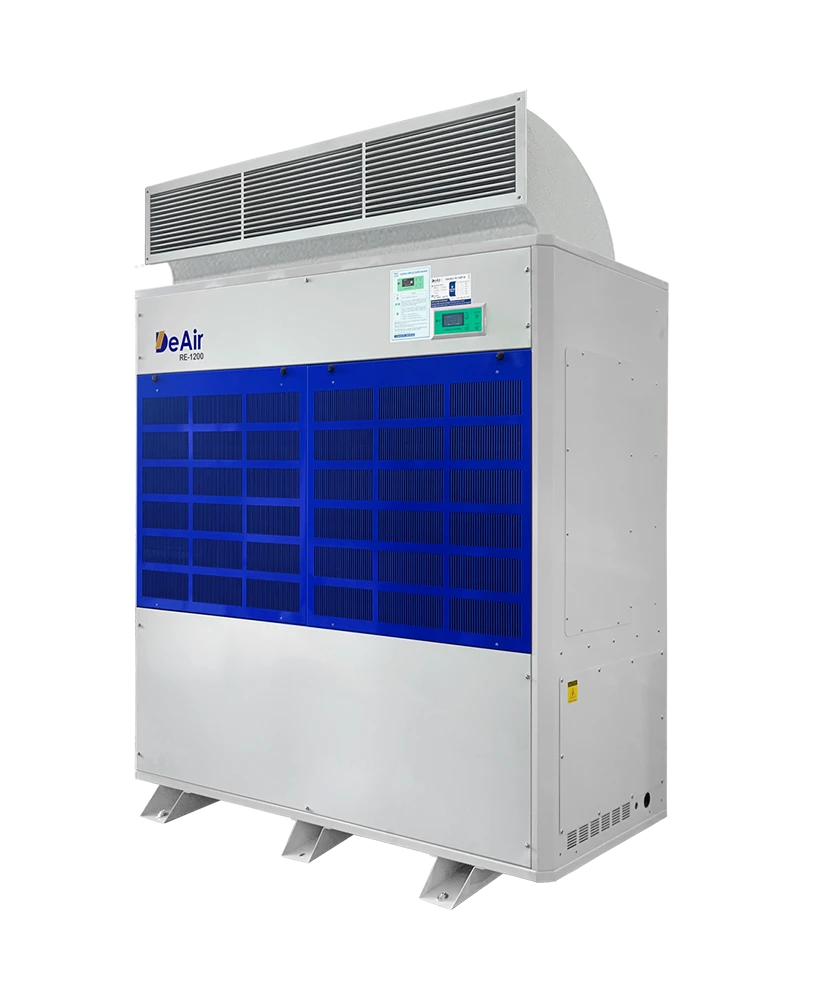 DeAir.RE
DeAir.RE -
Heat-Pump Dryer DeAir.RE-H
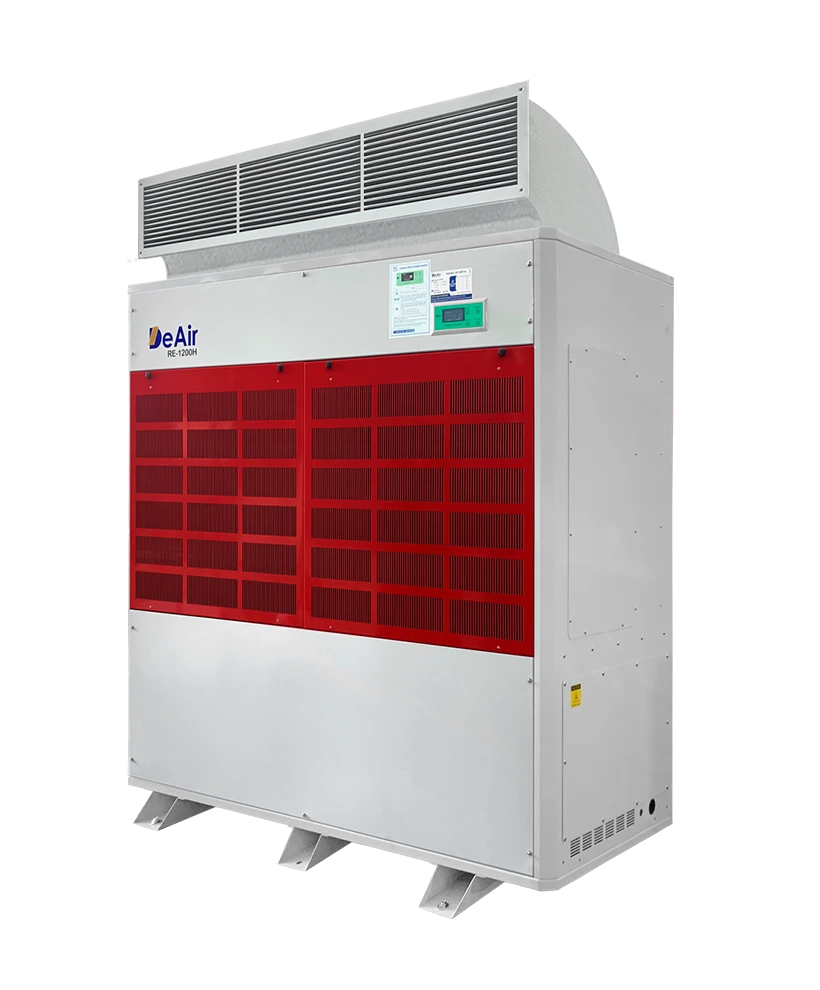 DeAir.RE-H
DeAir.RE-H -
Heat-Pump Stainless Steel Dehumidifier
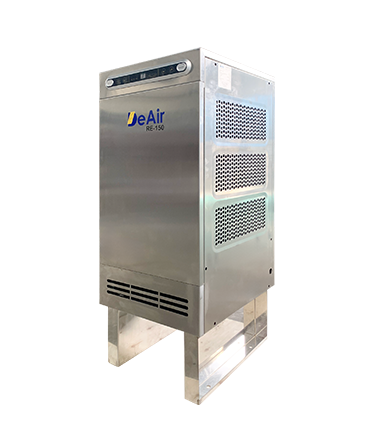 DeAir.RE-INOX
DeAir.RE-INOX -
Heat-Pump Isothermal Dehumidifier DeAir.CRE
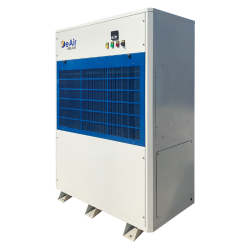 DeAir.CRE
DeAir.CRE -
Dezenno Dehumidifier
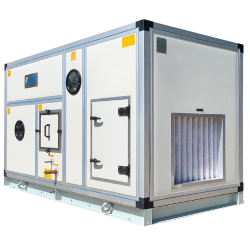 Dezenno
Dezenno -
Heat-Pump Ceiling Mounted Dehumidifier DeAir
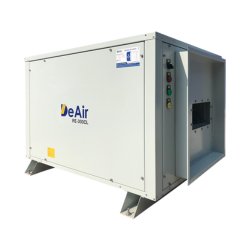 DeAir.RE-CL
DeAir.RE-CL -
Dehumidifier Olmas
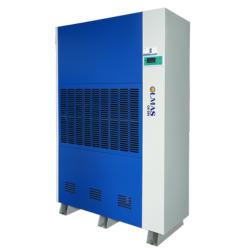 Olmas-OS
Olmas-OS -
Industrial Humidifier DeAir
 DeAir.HM
DeAir.HM -
Heat-Pump Dryer Daxwell
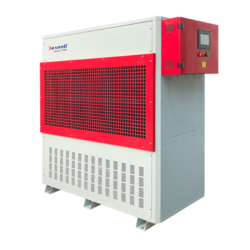 Daxwell
Daxwell -
Electric Duct Heater DeAir
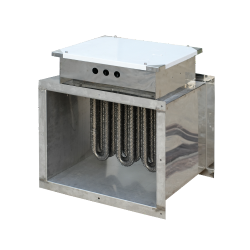 DeAir.Heat
DeAir.Heat -
Air Handling Unit Dezenno.MAX
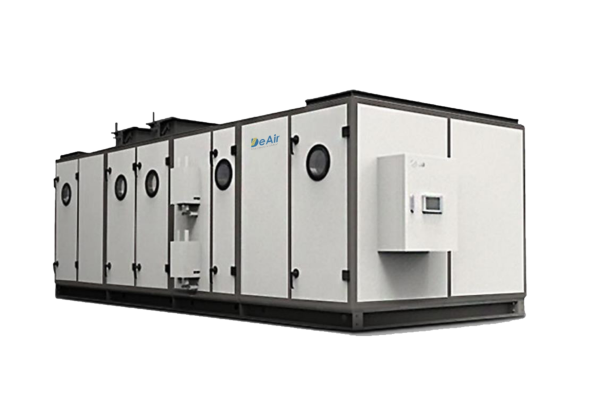 AHU
AHU
-
- Services
- Projects
- Warranty – Maintenance
- News
- Contact
Dehumidifiers for Pharmaceutical Industry: Comprehensive Humidity Control Solutions from DeAir
20/05/2025
Dehumidifier for Pharmaceutical Industry: DeAir Provides Solutions for Specific Requirements
Vietnam's tropical monsoon climate always poses significant challenges for industries, especially the pharmaceutical industry. Humidity control is not only an indispensable factor but also crucial for ensuring product quality, complying with strict regulations, and maintaining an ideal production and storage environment. This article will delve into the importance of humidity control in the pharmaceutical industry, specific requirements, and comprehensive solutions from DeAir Joint Stock Company – a reputable unit specializing in manufacturing dehumidifiers, AHU, and HVAC equipment in Vietnam.

1. Negative Impacts of High Humidity in the Pharmaceutical Industry
Excessive air humidity can cause serious consequences for processes and products in the pharmaceutical industry. High humidity is considered an "enemy" of many businesses.
- Direct impact on product quality: High humidity can cause decomposition, denaturation, reduced effectiveness, or even harm to medicines. Tablet, powder, and granule forms of medicine are very sensitive to moisture, easily absorbing moisture causing clumping, changes in color, taste, or reducing the stability of active ingredients.
- Risk of mold and bacteria: A humid environment is favorable for the growth of mold and microorganisms. This seriously threatens the sterile environment and cleanliness required in pharmaceutical production, especially in clean rooms.
- Damage to equipment and facilities: High humidity promotes corrosion and rusting of machinery, pipes, and factory structures. This reduces equipment lifespan, increases maintenance costs, and can disrupt production.
- Impact on packaging: Humidity can reduce the durability of packaging materials such as paper, carton, causing difficulties in transportation and storage.
- Impact on worker health: An overly humid working environment can cause discomfort and affect employee health.
2. Requirements and Regulations for Humidity Control in the Pharmaceutical Industry
The pharmaceutical industry operates under strict standards such as GMP (Good Manufacturing Practice) and GSP (Good Storage Practice) to ensure product quality and consumer safety. Environmental control, including temperature and humidity, is a core part of these standards.
2.1. Good Manufacturing Practice (GMP)
According to the Good Manufacturing Practice (GMP) principles stipulated by the Ministry of Health of Vietnam, typically Circular 35/2018/TT-BYT regulating Good Manufacturing Practice for drugs and medicinal ingredients, manufacturing facilities must comply with many regulations related to the production environment:
- Factory buildings and production equipment must be designed, constructed, maintained, and serviced appropriately to minimize risks, including avoiding the accumulation of dust, waste, and any elements that adversely affect product quality. High humidity can create conditions for mold and bacteria to grow, causing cross-contamination, directly affecting product quality.
- Control of the production environment is a basic requirement. Especially in pharmaceutical clean rooms, controlling temperature, pressure, and humidity is extremely stringent. This environment must control all factors that can affect the production process to ensure products are free from particulate and microbial contamination. Eliminating excess humidity plays an important role in minimizing adverse effects such as erosion, product damage, condensation, dampness, mold growth, prolonged drying times, and uncomfortable working environments.
- Validation is an important activity to confirm compliance with regulatory requirements for any process, equipment, material, activity, or system through specific evidence. Environmental control, including HVAC systems and dehumidification systems, needs to be evaluated and validated to prove they operate effectively, meeting cleanliness and environmental control standards as regulated.
- Product stability studies are performed to determine shelf life and expiration dates. Stability is evaluated based on chemical, physical, and microbiological tests, and storage conditions during stability studies are a core factor. Maintaining humidity throughout the production and storage process is essential to ensure the product maintains quality as established by stability study results.
- Documentation systems must record environmental monitoring data where required. Any deviation from procedures, including unsatisfactory environmental conditions, must be fully documented and investigated.
2.2. Good Storage Practice (GSP)
According to Circular 36/2018/TT-BYT of the Ministry of Health of Vietnam regulating Good Storage Practice for drugs and medicinal ingredients, humidity control in storage warehouses is mandatory:
- Storage areas must be designed or adjusted to ensure storage conditions as required on the drug label.
- Special areas such as cold storage, refrigerators are used to store drugs requiring strict temperature and humidity control. Temperature and humidity in the warehouse must be monitored and recorded. Temperature monitoring devices must be capable of automatically recording data at appropriate frequencies (usually 01 or 02 times/hour).
- There must be procedures for handling cases of non-compliance with storage requirements, including temperature and humidity deviations.
- Quarantine areas (awaiting processing, returned goods, recalled goods, suspicious goods) must be stored separately and have appropriate isolation measures. Maintaining controlled environmental conditions in these areas may also be necessary depending on product characteristics.
- Documentation systems must fully record the process of receiving, dispensing, storing, and other activities, including handling deviations in storage conditions.
- A written sanitation program for the factory and warehouse is required. High humidity creates conditions for mold growth, making it difficult to maintain hygiene.
Summary: High humidity not only directly affects drug quality (causing chemical, physical, and microbial changes, reducing efficacy, or creating impurities) but also threatens the integrity of packaging, causes equipment corrosion, and affects worker health. Humidity control is a mandatory requirement to comply with GMP and GSP, ensuring products meet quality and safety standards for consumers.
3. Air Treatment and Humidity Control Solutions from DeAir for the Pharmaceutical Industry
Understanding the stringent requirements and challenges of the pharmaceutical industry, DeAir provides comprehensive air treatment and humidity control solutions, designed to suit Vietnam's climate conditions and industry standards. These solutions include AHU and specialized industrial dehumidifiers.
DeAir's experienced team of experts is ready to consult, design an optimal dehumidification system for all factory sizes, ensuring stable operation, energy and cost savings.
3.1. Air Handling System AHU Dezenno.MAX: The "Brain" of the Pharmaceutical Environment
AHU (Air Handling Unit) plays an indispensable role in the HVAC system of modern buildings, likened to the "brain" of the air treatment system. In the pharmaceutical industry, especially in clean room areas, AHU Dezenno.MAX by DeAir performs important functions:
- Heat exchange and thermal-humidity treatment: AHU performs heating or cooling of air through heat exchangers. It also has a humidifier and dehumidifier. AHU Dezenno.MAX is integrated with DeAir.HM humidifiers to adjust humidity upwards when needed.
- Air filtration: Multi-stage filtration systems are important components, including pre-filters, bag/fine filters, and especially HEPA filters for environments requiring high cleanliness such as clean rooms. AHU Dezenno.MAX meets the needs for dust, microbial filtration, and maintains good indoor air quality.
- Fresh air and return air mixing: The mixing chamber helps blend fresh air from outside and return air from the occupied space to adjust quality and save energy.
- Air transport and distribution: Fans (usually centrifugal fans) provide the motive force to move air through the AHU and ducting system, delivering treated air to various areas. Fans for clean rooms need to withstand high static pressure.
- Control and monitoring: Intelligent control systems help AHU operate stably, meeting temperature, humidity, and pressure requirements. AHU Dezenno.MAX can connect to a Building Management System (BMS).
In pharmaceutical clean rooms, AHU Dezenno.MAX offers many advantages over using only single dehumidifiers. AHU pre-treats and maintains the overall air environment, while other equipment can be used for precise humidity control in specific areas.

3.2. DeAir Specialized Industrial Dehumidifiers: Precise Humidity Control Solutions
DeAir offers two main industrial dehumidifier technologies, each with its own advantages suitable for different requirements in the pharmaceutical industry:
a. Industrial Dehumidifiers with Heat-Pump Technology
Heat-Pump dehumidifiers are advanced variants of condensing dehumidifiers. This technology saves energy and provides high dehumidification efficiency. Instead of discharging heat, it utilizes heat from the condensation process to warm the dry air before blowing it out, helping to minimize temperature changes in the room and significantly save electricity.
DeAir's Heat-Pump dehumidifiers are suitable for the pharmaceutical industry:
- Heat-Pump Dehumidifier DeAir.RE: The basic model, using energy-saving Heat-Pump technology. Suitable for storage, packaging, or production areas with common relative humidity control requirements (e.g., below 70% RH for general storage).
- Heat-Pump Dehumidifier DeAir.RE-INOX: Stainless steel version. Especially suitable for specific environments in the pharmaceutical industry such as humid processing or packaging areas or near the sea, where high hygiene and corrosion resistance are required. Models like DeAir.RE-150H INOX, DeAir.RE-300H INOX, DeAir.RE-600H INOX.
- Isothermal Heat-Pump Dehumidifier DeAir.CRE: A solution for simultaneous humidity and temperature control. This is an optimal choice for special pharmaceutical production processes or laboratories requiring high stability in both factors. Model DeAir.CRE-600 is an example.
Compared to traditional cold condenser machines, DeAir Heat-Pump dehumidifiers consume significantly less energy (30-50% or more) to remove the same amount of moisture. They maintain more stable performance at room temperature and return dry but warmer air.

b. Dezenno Rotor Dehumidifier: Ultra-Low and Precise Humidity Control
Dezenno rotor dehumidifiers use continuous desiccant adsorption technology with high-grade desiccant materials (silica gel or zeolite) on a rotating rotor. This technology offers superior power and flexibility, especially for applications requiring high precision and ultra-low humidity.
Advantages and applications of Rotor Dezenno in the pharmaceutical industry:
- Superior performance at ultra-low humidity: Dezenno Rotor dehumidifiers operate effectively even at low temperatures and can achieve very low humidity levels, maintaining a low dew point as required. This is extremely important for areas producing tablets, powders, or storing moisture-sensitive raw materials, where humidity below 40% RH is needed.
- Continuous operation: Thanks to the simultaneous dehumidification and regeneration process, Rotor Dezenno dehumidifiers can operate continuously without interruption.
- Precise humidity control: Dezenno has precise control capabilities for both relative humidity (RH) and absolute humidity.
- Prevents condensation: The ability to maintain very low humidity helps eliminate the risk of water vapor condensation causing damage to products and equipment.
- Durability in harsh environments: The structure is designed to be more durable to withstand industrial conditions, and can integrate suitable filtration systems.
DeAir offers Dezenno Rotor dehumidifiers with a diverse range of capacities, from small models (air flow 320-1200 m³/h, dehumidification capacity 1.4-8.34 kg/h) to large models (air flow 1500-18000 m³/h, dehumidification capacity 10.5-134.0 kg/h).
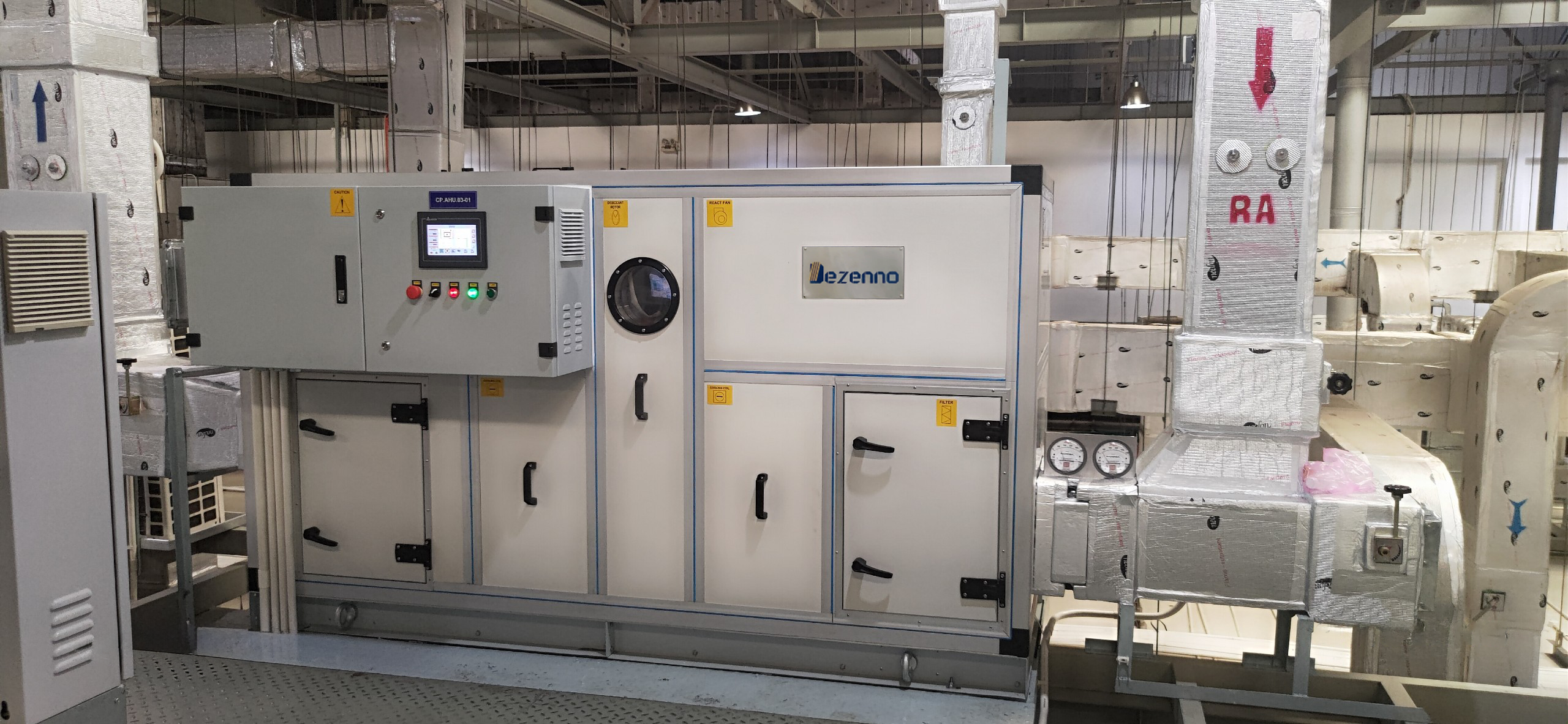
3.3. Specific Applications in the Pharmaceutical Industry (Production and Storage)
Based on DeAir's requirements and technologies, solutions are applied as follows:
Production Areas (Especially Clean Rooms):
- AHU Dezenno.MAX: Takes on the role of central air treatment. Provides dust and microbial filtration (through filters, including HEPA). Adjusts temperature and preliminary humidity treatment. Ensures air circulation and room pressure.
- Dezenno Rotor dehumidifiers or DeAir.CRE: To achieve and maintain the very low and precise humidity levels often required in sensitive processes such as tablet, powder production, and packaging. DeAir.CRE also helps control temperature simultaneously.
- Heat-Pump Dehumidifier DeAir.RE-INOX: Suitable for production areas requiring high hygiene and environments with mild corrosive potential due to raw materials or production processes.
Storage Areas (Raw Material Warehouses, Semi-finished Products, Finished Products):
- Dezenno Rotor dehumidifiers: An ideal solution for storage warehouses requiring ultra-low humidity to preserve moisture-sensitive raw materials and finished products. Helps extend storage time, maintaining physical and chemical properties.
- Heat-Pump Dehumidifier DeAir.RE/RE-H/RE-CL: Provides an efficient and energy-saving humidity control solution for general storage warehouses or areas not requiring extremely low humidity. The DeAir.RE-CL ceiling-mounted model helps optimize warehouse space.
- Monitoring system: Requires integration of an automatic temperature and humidity monitoring system with alerts. DeAir's control system can connect to BMS.
Laboratories and Quality Control (QC) areas:
- The environment needs to be stable to ensure the accuracy of tests. Stability studies must be performed under controlled conditions.
- DeAir solutions: Provide precise humidity control solutions for laboratories, stability sample storage areas, ensuring the testing and sample storage environment meets standards, contributing to accurate test results and reliable stability study data.
4. Why Choose DeAir for the Pharmaceutical Industry?
DeAir is a trusted partner, specializing in manufacturing dehumidifiers, AHU, and HVAC equipment in Vietnam. Choosing DeAir brings many practical benefits to pharmaceutical businesses:
- Comprehensive and specialized solutions: DeAir provides both AHU and a diverse range of dehumidifiers (Heat-Pump, Rotor), allowing for optimal air treatment and humidity control solutions to be designed for each specific area with different requirements in a pharmaceutical factory.
- Manufactured in Vietnam: DeAir products are designed and manufactured right in Vietnam. This allows for flexible product customization according to specific requirements and Vietnam's climate conditions, ensuring optimal performance and cost. DeAir has a deep understanding of Vietnam's tropical monsoon climate.
- Advanced technology: DeAir pioneers the application of energy-saving Heat-Pump technology. The Dezenno Rotor line is optimized for ultra-low and precise humidity control.
- High Quality and Durability: DeAir industrial dehumidifiers are made from high-quality, corrosion-resistant materials, ensuring durability and long lifespan in harsh industrial environments. DeAir has an ISO 9001:2015 certified quality management system.
- Professional Service: DeAir provides 24/7 technical service, solution design consulting, installation, and periodic maintenance. An experienced team of experts is ready to assist.
5. Warranty and Maintenance from DeAir
To ensure AHU and dehumidifiers operate stably and extend their lifespan, proper use and maintenance are very important.
- Warranty: DeAir products are warranted free of charge for 24 months from the date of delivery for defects due to materials or manufacturing process. The warranty scope includes repair costs, replacement of defective components within Vietnamese territory. Cases not covered by warranty include damage due to incorrect transportation, misuse, natural disasters, repairs by unauthorized units, incorrect power supply, unauthorized adjustment/replacement of parts, rust/corrosion due to environment (except Inox models designed for corrosive environments), failure to comply with operating/maintenance instructions, improper cleaning, or natural wear and tear.
- Maintenance: DeAir offers professional annual periodic maintenance programs that help ensure stable system operation, prevent breakdowns, and maintain optimal performance. DeAir commits to transparency regarding out-of-warranty costs.
- Basic guidelines: Including regular parameter checks, equipment cleaning (especially filters), checking internal components (belts, fan blades, bearings...), cleaning the cooling coil, checking before restarting, and monitoring stability. In case of abnormal incidents, contact the supplier for timely support.
Conclusion
Humidity is a key factor affecting quality, safety, and production efficiency in the pharmaceutical industry. Investing in professional humidity control solutions is a smart and sustainable investment choice.
With a diverse product range including AHU Dezenno.MAX Air Handling Systems for overall air treatment and purification, along with Heat-Pump Industrial Dehumidifiers for energy saving and Dezenno Rotor Dehumidifiers for ultra-low and precise humidity control, DeAir offers a comprehensive solution meeting stringent requirements from production to storage in the pharmaceutical industry. The advantages of manufacturing in Vietnam, advanced technology, professional support services, and ISO 9001:2015 quality commitment affirm DeAir as a reliable partner for all pharmaceutical businesses.
Don't let humidity hinder the growth and reputation of your pharmaceutical business. Contact DeAir immediately for consultation on optimal humidity control solutions, tailored to your specific needs and compliance with industry regulations.
DeAir Contact Information: Hotline: 0925977579 Email: deair@deair.com.vn Office & Factory: 442/8 National Highway 1A, An Phu Dong Ward, District 12, Ho Chi Minh City
Sign up for news from DeAir
Related news






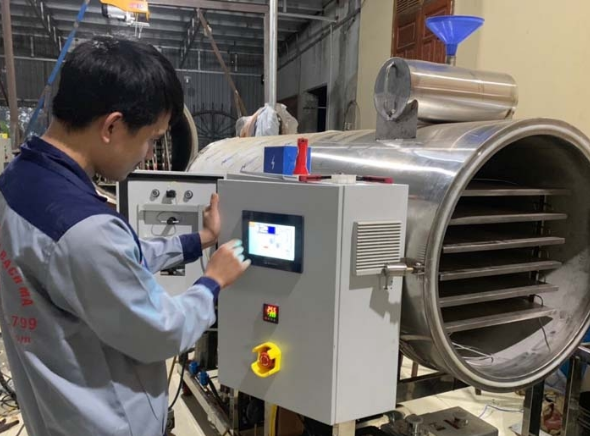



![[Case Study] DeAir Installs DeAir.De Rotor Humidity Control System for Pharmaceutical Plant in Binh Duong [Case Study] DeAir Installs DeAir.De Rotor Humidity Control System for Pharmaceutical Plant in Binh Duong](https://deair.com.vn/thumbs/news/2023_04/ban_giao_may_cho_duoc_bd/[270x153-cr]image1-1024x772.jpg__cv.webp)
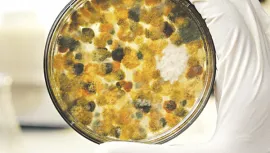
![[Review & Guide] Olmas OS-300: The New Humidity Control "Warrior" for Medium to Large Warehouses [Review & Guide] Olmas OS-300: The New Humidity Control "Warrior" for Medium to Large Warehouses](https://deair.com.vn/thumbs/news/huong_dan_su_dung_may_olmas_21/[270x153-cr]vtm06440.png)